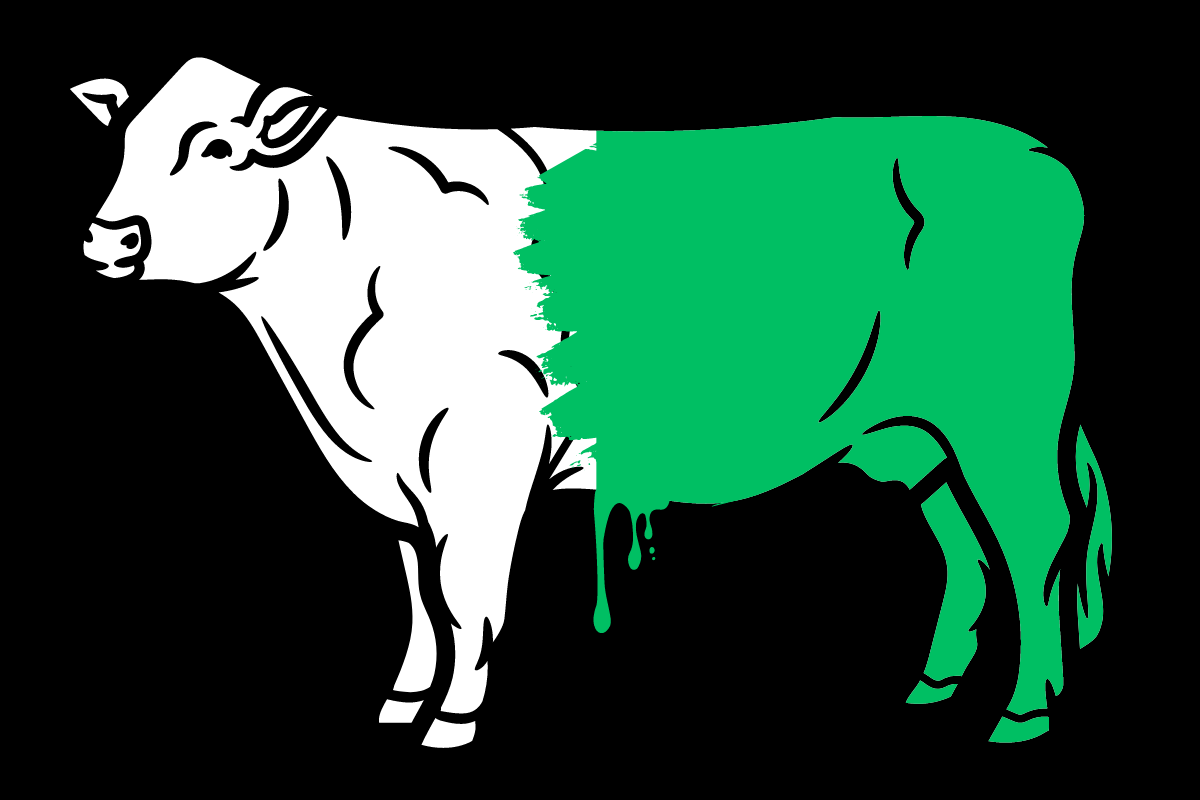By Scott Smith
Mention the word “protein” and most people will think of steak or eggs or some other animal product. Order a nice, healthy salad at a restaurant and the server will no doubt try to upsell you by asking, “would you like to add a protein with that?” Your choices? Invariably, beef, chicken or fish.
But consider this: Pound for pound, raw lentils have more protein than steak. A handful of almonds provides about six grams of protein, about the amount you’d get from eating an egg.
So why does the animal industry get to own an objective nutritional term that applies just as well—if not better—to so many other foods? Rebranding animal flesh as anodyne “protein” amounts to whitewashing, says Priscilla Feral, president of Friends of Animals. “It immunizes them from revulsion by taking the sting out of calling it what it is, which is animal flesh.”
“The problem is, these chefs and food companies are perpetuating a tunnel-visioned conception of what protein is,” Feral wrote in an “In My View” column published in late December. “They’re disregarding the merit of vegetable protein. Rest assured; you can meet your protein needs with plant-based foods alone.”
Fortunately, major news outlets appear to be heeding FoA’s call to “make animal-free protein the norm in 2024.” Both The New York Times and The Washington Post kicked off the new year with substantial news articles extolling the virtues of plant-based protein, not only to save the lives of millions of cows, billions of chickens and trillions of fish each year, but to save the planet.
“The lentil is again on the front lines,” opined Michael J. Coren in a Post article about why you should eat lentils every day. “This time, against climate change. While start-ups scramble to engineer a sustainable protein, from lab-grown meat to fake burgers, lentils are a ready solution, one with a proven record.”
“And unlike red meats, particularly those that have been processed, lentils have none of the saturated fats and additives that raise the risks of cancer and heart disease,” Coren added.
“Legumes are a key source of plant-based protein in the Mediterranean diet,” observed Alice Callahan, health and science reporter for the Times. “One cup of cooked beans, lentils or peas contains about 15 grams of protein — just under a quarter of the daily needs of an average adult. And research suggests that people who get more of their protein from plant (rather than animal) sources tend to live longer, healthier lives.”
For Feral, who has followed a vegan lifestyle for decades and has been fighting to end the cruelty toward and exploitation of animals even longer, the clarion call for plant-based proteins came last summer with new research from the University of Oxford. The study found that, compared to meat-heavy diets, vegan diets resulted in 75 percent less land use, 54 percent less water use, and 66 percent less biodiversity loss. In terms of greenhouse gas emissions, people who ate more than 3.5 ounces of meat daily accounted for 22.5 pounds of carbon dioxide emissions a day compared to vegan diets which accounted for 5.4 pounds of carbon dioxide a day.
Animal agriculture and land use directly accounts for 18.4% of global greenhouse gas emissions, according to a report published by Climate Watch and the World Resources Institute. The publication noted that the provision of adequate grazing land and food for livestock fuels deforestation, while the animals also produce tremendous quantities of methane, a greenhouse gas found to be up to 87 times more potent than carbon dioxide over a 20-year period.
The meat and dairy industry’s response to this irrefutable evidence? More “greenwashing” and a massive lobbying effort aimed at convincing people that animal protein can be climate friendly. Tyson has launched a brand called Brazen Beef, which is selling steaks and other cuts of meat marketed as “climate friendly,” reports The Washington Post.
Talk about brazen. Tyson justifies this misinformation by claiming it raises cattle in a way that emits 10 percent fewer greenhouse gases than the industry average. Worse, the U.S. Department of Agriculture has approved Tyson’s “climate-friendly” marketing scheme for Brazen Beef.
“Eating a hamburger is always the worst choice for the climate,” climate activist Scott Faber told the Post. His organization, the Environmental Working Group, is petitioning the USDA to revoke the misleading label. “There is no such thing as a climate-friendly hamburger,” said Faber.
Sigal Samuel of Vox.com likens Big Meat’s deceitful spin to Big Oil’s decades-long quest to deny climate science. “These companies have spent millions of dollars lobbying against climate policies and funding dubious research that tries to blur the links between animal agriculture and our climate emergency.”
So let’s stop the efforts by the meat and dairy industry to claim that their “protein” is in any way healthier for people or the planet than plant-powered protein. A good place to start is by making your next main course from one of these delicious vegan recipes:

